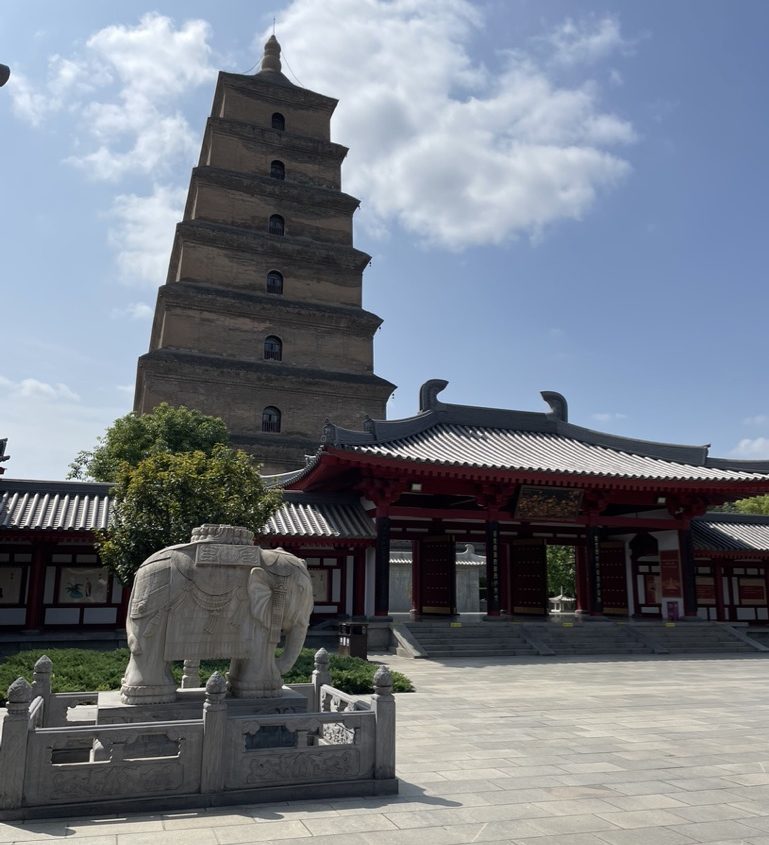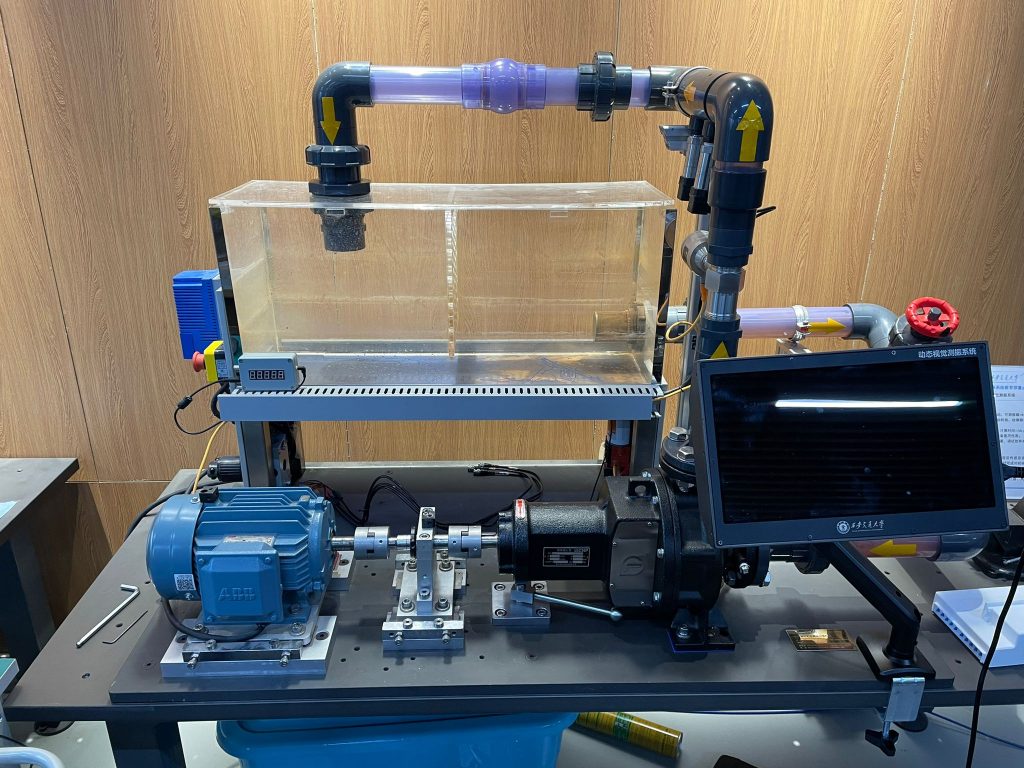Valeria Capretti – Xi’an Jiaotong University, China
What differences did you notice between the educational system of the host university and that of your home institution?
From a didactic point of view, one of the main differences I observed compared to my home university was the smaller class size. Courses were organized in small groups of students, generally between 15 and 20 people, which fostered a much more interactive and participatory learning environment. This setting enabled the establishment of a closer relationship both with the professors and with fellow students, thus facilitating discussion and collaboration. Lessons were not held in a traditional lecture format, but often became collective moments of reflection. The professor would ask open-ended questions to the class, encouraging technical discussions in which everyone was actively involved.This approach made learning more engaging and dynamic, allowing me to deepen my understanding of the subjects also thanks to the contributions of other students. The courses I attended focused on highly specific and advanced topics in the field of automation and control, such as numerical optimization for control, safety for automation systems, measurement, vibration mechanics, and power electronics. The variety and specialization of the courses offered allowed me to explore in depth areas that are rarely addressed with such detail at my home university.
How did the mobility experience contribute to expanding your technical and/or practical skills in the field of automation and control? Did you have access to particularly relevant laboratories, projects, or technologies?
The mobility experience at Xi’an Jiaotong University was a unique opportunity to strengthen both my technical and practical skills in the field of automation and control. The university is strongly oriented towards practical learning: each course included a theoretical component accompanied by laboratory sessions, where it was possible to directly apply the concepts studied. The laboratories were particularly well-equipped, featuring modern instruments and cutting-edge technologies, which enabled me to work on concrete and realistic projects. The final examination for each course consisted of the development of a practical project—often complex and multifaceted—which was assessed both from a technical perspective and in terms of design capabilities. This type of teaching allowed me to tackle real-world problems, similar to those that I may encounter in a professional context. I learned to manage all phases of a project, from problem analysis to implementation and validation of the solution, acquiring highly practical and marketable skills. In particular, I improved my technical problem-solving abilities and my autonomy in designing complex systems.
Did you have the opportunity to work on international projects, in multicultural teams, or with professors/researchers of other nationalities? If so, what did you learn from these interactions, also in terms of soft skills?
Yes, during my time at Xi’an Jiaotong University, I had several opportunities to work in international contexts, both with students and faculty members from different countries. The classes included both Chinese and international students, and the group projects—which represented the core component of the assessment—gave me the chance to collaborate with people from diverse cultural, linguistic, and academic backgrounds. Moreover, many professors and researchers were also from other countries, which further enriched the educational experience. This diversity allowed for the course content to be addressed from a variety of perspectives, often through innovative and internationally recognized teaching methods. Constant interaction with academics from different cultural backgrounds contributed to creating an open, dynamic, and dialogue-oriented learning environment. These experiences helped me develop several soft skills that are essential in today’s job market: intercultural communication, the ability to work in heterogeneous teams, adaptability to different working styles, time and conflict management, and especially the mental flexibility required to interact with people who hold different viewpoints. I learned to actively listen, mediate between contrasting ideas, and value diversity as a source of creativity and innovation.
From a personal point of view, what were the major challenges you faced during your time abroad, and how do you think they contributed to your growth, both academically and personally?
Chinese culture is incredibly fascinating, but at the same time very different from ours, and this was one of the aspects that struck me the most from the very first day. I had never had the opportunity to immerse myself so deeply in a reality so distant from my own, and I must admit that the cultural shock was initially quite strong. Getting used to new rhythms, different ways of interacting, a completely different diet, and a lifestyle so far removed from Western norms was not easy. However, after the first few weeks of adaptation, I began to feel increasingly at ease. The people I met were extremely welcoming, always smiling, helpful, and kind. There was a great openness towards me as an international student, which greatly helped me feel accepted and part of a community. I built strong relationships that go far beyond academic connections and that I will cherish forever. I believe I have grown immensely on a personal level: today I feel much more independent, resilient, and ready to face new and complex situations. Being able to adapt to such a different environment has greatly increased my confidence in both my personal and professional abilities. I now feel better prepared to enter international work environments, to handle change calmly, and to embrace every new challenge as an opportunity for growth.
Would you recommend this experience to other students in Automation and Control Engineering? What aspects do you consider most relevant before undertaking an international mobility program?
Absolutely, I would highly recommend an international mobility experience to all students in Automation and Control Engineering. Living and studying in an academic and cultural context different from one’s own not only significantly enhances technical knowledge, but also offers a unique opportunity for personal growth, open-mindedness, and the development of transversal skills that are increasingly valuable in the job market. From a technical standpoint, it provides access to different teaching methodologies, advanced laboratories, innovative practical projects, and continuous interaction with students and professors from around the world. All of this fosters a more flexible and creative approach to problem-solving and allows for a deeper exploration of areas of automation and control that may be addressed less practically or thoroughly at one’s home university. However, the human value of the experience is even more important: learning to live in another country, facing daily challenges far from home, and interacting with people from different cultures are all experiences that make one more aware, open-minded, and mature. You discover greater independence, adaptability, and the ability to face change with confidence. Before departing, however, I believe it is essential to mentally prepare for the fact that things will not be easy from the start. A good dose of curiosity, open-mindedness, and adaptability is necessary. Initial difficulties are normal, but it is precisely by overcoming them that one gains the most from the experience. Moreover, it is advisable to gather detailed information about the host university, the available courses, the language of instruction, and the practical aspects of daily life, in order to embark on the experience with awareness and good organization.


